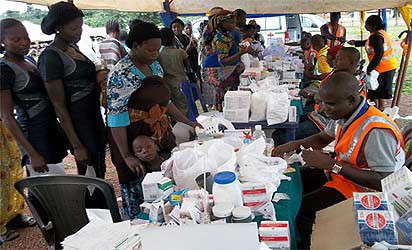Health is an essential input to poverty reduction and socioeconomic development. However, in principle all people are legally entitled to and should be guaranteed access to at least the minimum set of services, health professionals and resources. Furthermore, this entitlement must be protected and enforced by legal and regulatory measures, so that no one is prevented from seeking this minimum package of care. For this reason, Sokoto and Bauchi states are both committed to the provision of effective, affordable and sustainable health services to the entire population through an essential package of care – referred to in this assignment as Minimum Service Package (MSP). But what is MSP and how much does it cost? It is an effective and efficient way of improving health service delivery, and is intended as a guaranteed minimum level of services, resources and personnel for all residents. Based on WHO definition[1], the MSP will be a combination of both public health and clinical interventions, with a particular focus on primary and/or secondary levels of care.
However, there are financial repercussions to any proposed health-care package, and consequently a need to carefully assess the financial implication of a specific MSP to be delivered in the state. Due to the finite scope of MSP, it is impossible to include the resources required to meet the health needs of all members of the population. Therefore, deciding on a basket of services to be included in the package will require a conscientious effort on the part of decision-makers to determine the services that meet the most basic and/or urgent health-care needs of the population.
Sokoto State Strategic Health Development Plan (SSSHDP) provided for the need to constitute a committee to adopt minimum package of care at state and local government and to review, cost, disseminate and it in an integrated manner. It is clearly specified that the state would “provide a costed essential package of care for child health: malaria, diarrhea, immunization malaria, HIV/AIDS, endemic diseases control, ANC, family planning, delivery, & referral of complications”.
Since provision of MSP is context-specific and should reflect differences in the social, epidemiological profile, economic capacity and development levels between Sokoto and Bauchi States, this assignment will be guided by the following steps:
- Defining and ascertaining the criteria for inclusion into an MSP;
- Reviewing country experiences; and
- Costing of a defined MSP.
[1] World Health Organization (WHO). 2008. Essential health packages: What are they for? What do they change? WHO Service Delivery Seminar Series, Technical Brief No. 2 (Geneva).

